How Safe Is Costa Rica?
Costa Rica has become one of the most popular expat and digital nomad destinations in Latin America, known for its natural beauty, relaxed lifestyle,...

8 min read
In most countries, you are required to spend at least 183 days within its borders to qualify as a tax resident. This is often called the 183-day rule. But what if you didn’t have to and could spend way less time? Instead of being forced to spend half of the year in a country, you could just stay there for, let’s say, only 60 days and spend the rest of the year somewhere else!
Beyond the typical 183-day rule, you can find jurisdictions where it’s not necessary to spend that amount of time. Picking the right place to be a tax resident is one of the biggest decisions expats should make when securing their new lives abroad and keeping most of their money in their pockets.
That’s why, if you’re looking for a change in tax residency, it’s paramount that you discover the available options. The world remains a vast place, and in this article, you’ll find various options to choose the right one to minimize your tax bill.
The concept of tax residency entails the legal and fiscal nexus an individual has with a particular country, dictating where they’re subject to taxation. This designation determines the obligations, entitlements and exposure to taxation locally and internationally. Let’s check the key factors that influence your tax residency status:
Economic Ties: This refers to the connection you have with the country, such as property ownership, employment or business engagement;
Permanent Establishment: Choices such as the establishment of a permanent residence (e.g. your habitual home) or business entity can influence what your tax residency is;
Center of Vital Interests: Factors like family ties, professional activities and investments may determine your tax residency;
Days Spent in a Country: This is the simplest and most typical way to determine one’s tax residency. The famous 183-day rule is common, but other countries may stipulate a different number of days.
Understanding these factors is fundamental not only to finding the tax residency that benefits you the most but also to ensuring compliance with regulations and optimizing your financial position.
.jpg?width=850&height=478&name=To%20ensure%20that%20you%20comply%20with%20these%20rules%2c%20working%20with%20a%20tax%20professional%20who%20can%20help%20you%20accurately%20value%20your%20cryptocurrency%20donations%20is%20important(CRYPTO%20BILL).jpg)
Picking the right place to be a tax resident is one of the biggest decisions expats should make to mitigate the burden of double taxation and minimize their tax bill
The main reason for obtaining a tax residency certificate is no other than to mitigate the burden of double taxation and minimize your tax bill. With a recognized tax residency, you can ensure your income is not unnecessarily subject to taxes in multiple jurisdictions.
Another massive benefit to having a tax residency certificate is that it allows you easier access to financial services such as bank accounts and credit. Last but not least, you will protect yourself against potential disputes when interacting with tax authorities. Consequently, a tax residency certificate opens the doors to way more than enticing tax benefits.
Having understood the importance of a tax residency certificate, let’s look at a handful of countries that can help you get yours without spending 183 days within their borders.
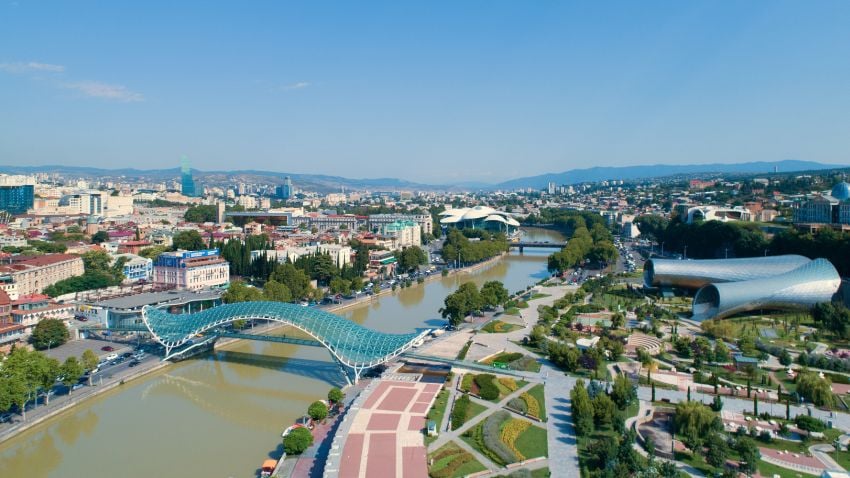
Tbilisi, Georgia
At the crossroads of Asia and Europe, Georgia presents appealing tax incentives for expats in a strategic geographical position that facilitates travel and access to multiple markets and key countries.
Apart from the classic 183-day rule, if you want to get your tax residency certificate in Georgia in less than 183 days, you need to be a high net-worth individual by the country’s standards. You’ll be regarded as such in the following cases:
You have a net worth of over GEL 3,000,000 (around $1,126,000 USD) anywhere in the world;
Or, your annual income is over GEL 200,000 (around $75,000 USD) in the three previous years before submitting your application.
Note that in any of these cases after April 15, 2023, you also need to prove that you own wealth in Georgia worth $500,000 USD. This can be, for example, in the form of real estate, stocks or simply money in a Georgian bank account.
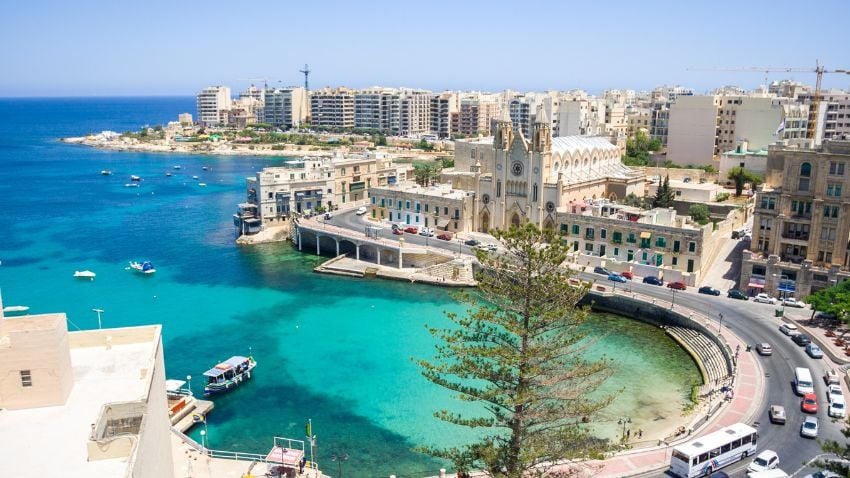
Bay in Valetta, Malta
Malta is a tiny island country in the Mediterranean, an EU and Commonwealth member south of Italy. English is an official language, facilitating integration for English-speaking expats.
The country’s privileged location in the middle of the Mediterranean grants it lots of sunny days throughout the year, but this place is way more than a vacation spot. In particular, the country boasts special tax regimes to attract high-networth individuals to the country. Here are the requirements the program states to get tax residency:
Be a national of the EU (except for Malta), Iceland, Norway, Liechtenstein or Switzerland;
Do not be a beneficiary of other tax programmes such as the Global Residence Programme Rules;
Own: an immovable property in Malta not located in the South of the country, worth at least €275,000 ($297,084 USD); or immovable property in the south of Malta or Gozo, worth at least €220,000 ($237,668 USD);
Rent a property situated in Malta other than in the south of Malta, worth at least €9,600 ($10,371 USD) per year, or rent a property located in the south of Malta or Gozo, worth €8,750 ($9,453 USD) per year;
Other requirements include being in good health and having health insurance.
Upon acquiring this tax residency certificate, expats and their dependents can benefit from a 15% tax rate on foreign-sourced income.
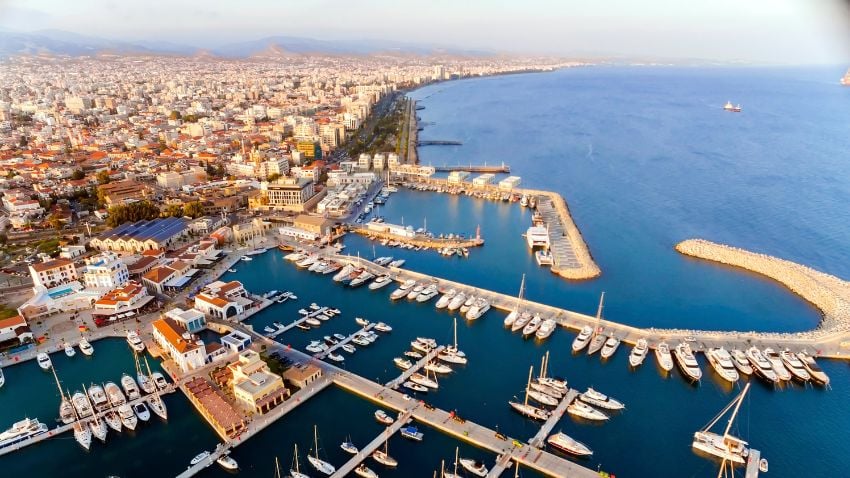
Limassol Marine, Cyprus
A small Mediterranean country south of Turkey and an EU member, Cyprus is an interesting jurisdiction for expats looking for favourable taxes in Europe. Considering the push for high taxes in the EU, Cyprus stands out with its special Income Tax Law amended in 2017.
Before listing out the tax benefits Cyprus offers, let’s look at the requirements you need to meet to be eligible for tax residency in Cyprus:
You stay in the country for at least 60 days and less than 184;
Have a place of abode (owned or leased) in the country;
Do not reside in other countries for more than 183 days;
Do not be a tax resident in other countries;
You have your own business or are employed or hold an office in the Republic even after December 31, 2017.
These requirements grant you great flexibility, especially thanks to Cyprus's special 60-day rule. You will pay no inheritance, gift, or wealth taxes, among other incentives. Also, profits from the sale of investments are exempt from taxation.

Dubai Skyline, UAE
The UAE, a country in the Gulf region, boasts an attractive jurisdiction for expats looking for low taxes and a business-friendly environment. Its two main cities, Dubai and Abu Dhabi, are popular expat hubs, and the country itself is filled with expats from all over the world. Its strategic location allows easy travel and access to important markets.
The country’s tax climate is designed to attract capital and talent, streamlining the process to get tax residency. Here are the requirements you need to meet to become a UAE tax resident:
You have your primary place of residence and your main financial and personal interests in the UAE;
You were physically present in the UAE for 90 days or more, and you are a UAE national, possess a valid residence permit in the UAE, or hold the nationality of any GCC Member State, provided that you have a permanent residence or engage in employment or business activities in the UAE.
Meeting these conditions grants you the right to one of the best tax regimes in the world. To name a few perks, there are no income, withholding, wealth, inheritance or gift taxes. The VAT is a mere 5%, and the corporate tax is 9%.
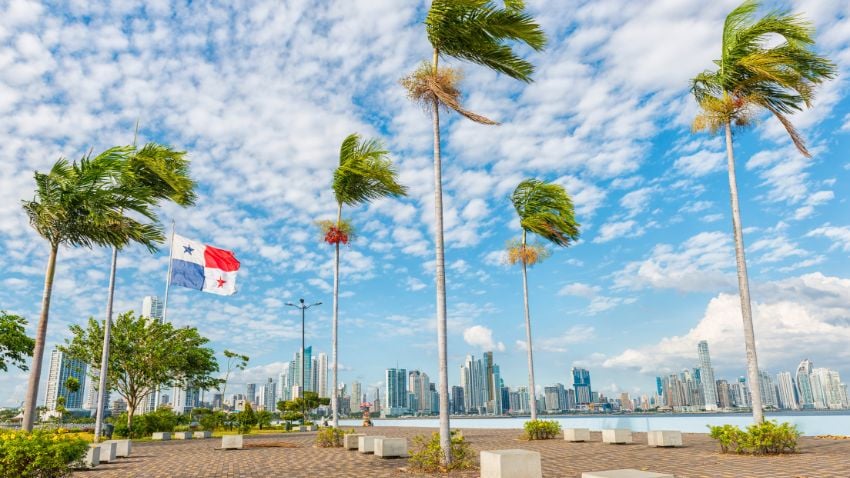
Panama City skyline
Also known as “The Hub of the Americas,” Panama has multiple benefits for expats willing to invest in the country and benefit from a strategic geographical position. It has been my home for almost five years, and I cannot stress enough how phenomenal this country is.
Multiple options exist to get your tax residency in Panama, but I recommend the Qualified Investors Visa. Let’s quickly see the available avenues to get yours:
Real Estate: on October 13, 2022, the Panamanian Government issued Executive Decree No. 109, allowing investors to invest just $300,000 USD to qualify for this visa. But this is a limited-time opportunity because the price will rise to $500,000 USD on October 13, 2024;
Fixed-term deposits (at least $750,000 USD);
Investment in Panamanian businesses through a Brokerage House approved by the Superintendency of Capital Markets of Panama (at least $500,000 USD).
Regardless of the route you pick, the funds must come from abroad and be compliant with Panamanian laws. The investment must be kept for a minimum of 5 years. Last but not least, you only need to visit the country once every two years to keep your tax resident status.
.jpg?width=850&height=478&name=antigua%20and%20barbuda%20(2).jpg)
Antigua & Barbuda
A member of the Commonwealth and CARICOM, Antigua and Barbuda is a small country in the Caribbean offering lots of benefits for high-net-worth individuals without a stay of 183 days or more in the country.
Antigua and Barbuda set up a special Tax Residency Scheme in 1995 to incentivize wealthy people to get residency. Here are the requirements you need to meet to get your tax residency certificate:
Have a place of abode (owned or leased) in Antigua and Barbuda;
Have an annual income of at least $100,000 USD;
Pay a flat tax of $20,000 USD;
Stay in the country for as little as 30 days per year;
Do not have tax residencies in other countries.
Once you meet these conditions, you’ll enjoy phenomenal tax exemptions. For example, there are no income, wealth or inheritance taxes, showcasing the country’s commitment to attracting capital. Also, you can opt for Antigua and Barbuda’s citizenship by investment program and secure a solid passport.
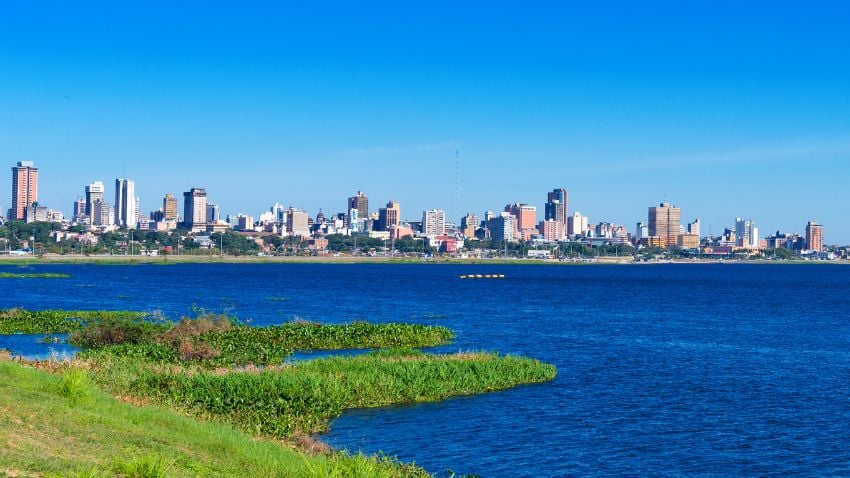
Paraguay River
Paraguay is a landlocked country in South America, bordered by Argentina, Brazil, and Bolivia. It boasts a low cost of living, multiple investment opportunities, and one of the lowest tax burdens in the Americas.
This tiny nation is open to foreign investment, and its special tax residency program is proof of that. Here are the requisites you need to meet to get your tax residency in the country:
Completing the three-day immigration process, which requires your birth certificate and a criminal background check, to become a temporary resident;
Give a copy of your Paraguay ID and sign a few documents to register with the Tax Office;
After you have your ID or Paraguay Tax Number, you can use it to demonstrate your financial situation.
The perks you get as a tax resident in Paraguay are numerous. Foreign-sourced income is tax-free, and the top income tax rate for income generated within the country is 10%, which also applies to corporate income and VAT.
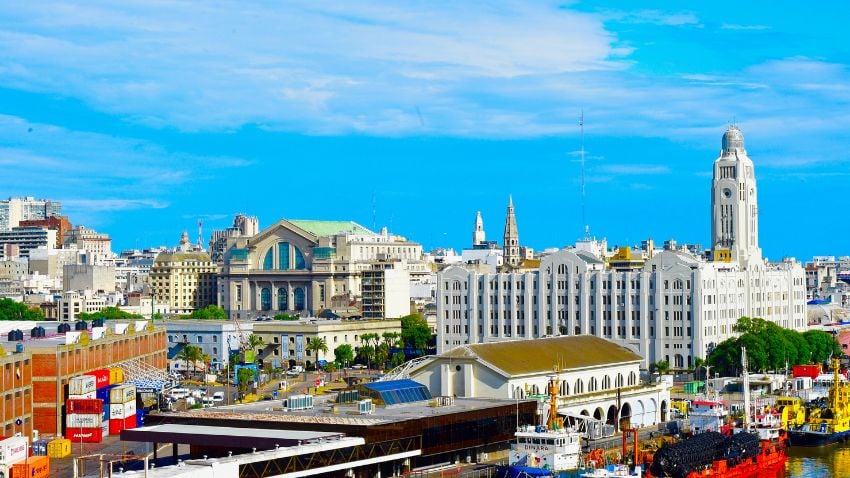
Montevideo, Uruguay
Uruguay is a small country in South America that is bordered by Argentina and Brazil. Though not so popular among expats, it is a land of opportunity for the right people, such as those interested in raising a family or holding tangible assets.
The country’s abundant greenery and natural resources such as cattle, timber and farmland are paired with a favourable special tax climate for expats. Here are the requirements you need to meet to turn Uruguay into your tax residency (just one suffice!):
Real Estate Investment: Invest $510,000 USD or more in real estate and spend at least 60 days in the country during the calendar year;
Investment in a company: Invest at least $2,180,000 USD, directly or indirectly, in any company and create 15 jobs;
‘Vital Interests’ Center: It is presumed that you have your vital interests based in Uruguay if your spouse and children subject to parental authority reside in Uruguay;
Real Estate Investment without Physical Presence: This investment requires an amount exceeding $1,680,000 USD, without the need for a minimum stay in Uruguay;
Investment in a Company of ‘National Interest’: The direct or indirect investment in a company for a value of $5,000,000 USD, provided that the company engages in activities or projects declared of national interest according to the provisions of the Investment Protection and Promotion Law (Law 16,906).
Regardless of the pathway to residency you wish to take, Uruguay wants to attract capital and act as a haven for investors. Some benefits available are a 10-year tax holiday, making foreign income tax-free (alternatively, you can opt for a 7% flat tax rate) and no taxes on foreign assets.
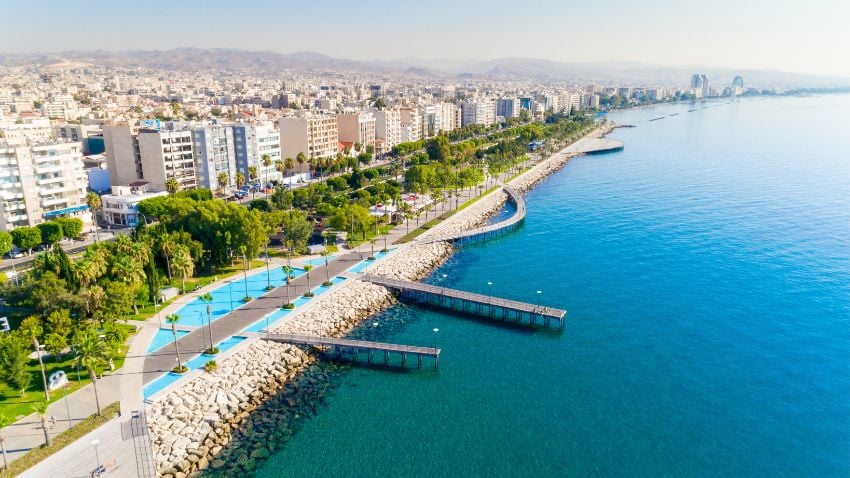
In Cyprus, you will not pay inheritance, gift or wealth taxes, among other incentives
Despite the push for high taxes all over the world, some countries like the ones on this list still want to compete for capital and talent. Note that this is but a fraction of the countries offering enticing tax benefits, but if you don’t want to spend more than 183 days anywhere, these are excellent options. Whether you want a tax-free income, a territorial tax system or special treatment to minimize your tax bill and pursue a global strategy, this list contains many choices worth considering. If you want to go the extra mile and get the most actionable information to get a second passport, grab your special report, Plan-B Residencies & Instant Citizenships Report. If you want not only to minimize your tax bill but also secure your new life abroad, claim it now.
If you want the best intel from the expat world, including profitable offshore opportunities, little-known tax-saving strategies, and hard-won insights on immigration, passports, and Plan-B residencies, all delivered to your inbox every single week, then join our daily correspondence, EMS Pulse®. Currently enjoyed by over 84,000 expats and expat-hopefuls worldwide. Fill in the form below to join our newsletter free:

Written by Mikkel Thorup
Mikkel Thorup is the world’s most sought-after expat consultant. He focuses on helping high-net-worth private clients to legally mitigate tax liabilities, obtain a second residency and citizenship, and assemble a portfolio of foreign investments including international real estate, timber plantations, agricultural land and other hard-money tangible assets. Mikkel is the Founder and CEO at Expat Money®, a private consulting firm started in 2017. He hosts the popular weekly podcast, the Expat Money Show, and wrote the definitive #1-Best Selling book Expat Secrets - How To Pay Zero Taxes, Live Overseas And Make Giant Piles Of Money, and his second book: Expats Guide On Moving To Mexico.
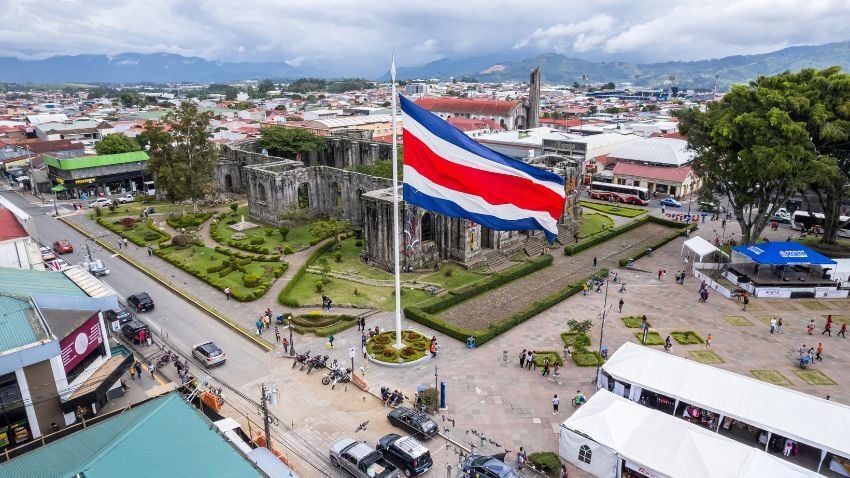
Costa Rica has become one of the most popular expat and digital nomad destinations in Latin America, known for its natural beauty, relaxed lifestyle,...

Mexico remains one of Latin America’s most compelling destinations, especially for North Americans. More than a million expats call it home, and tens...

South Korea is far more than K-pop and K-dramas. It is a country known for outstanding food, from bustling street markets to high-end dining, as well...